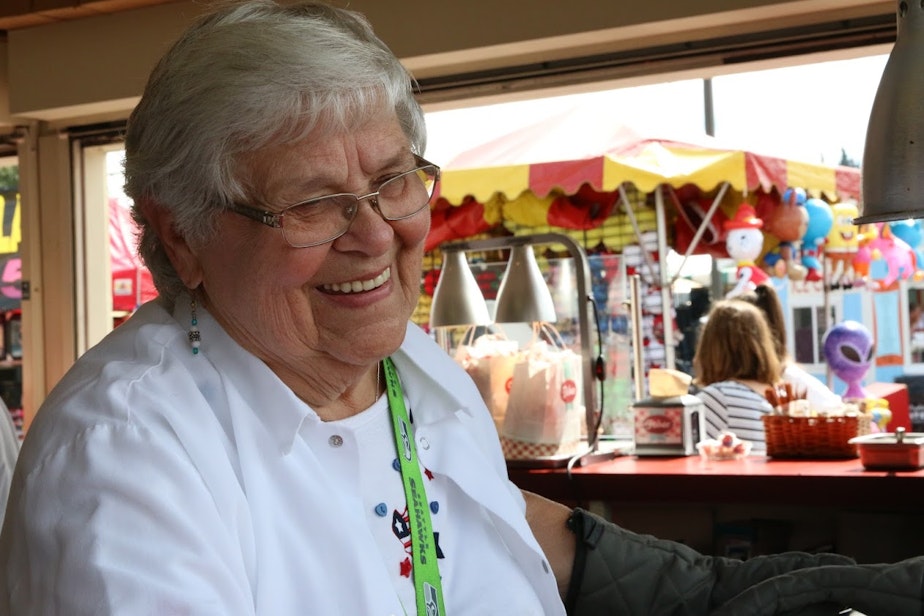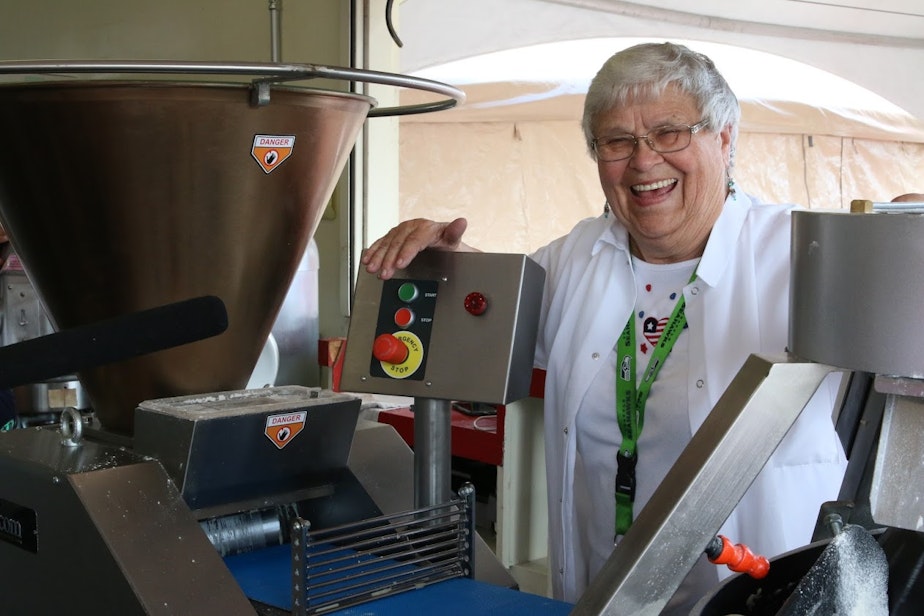Behind the scenes with scone makers at the Washington State Fair

When you walk into the Washington State Fair, there are rows and rows of food booths to tempt you.
But most people make a beeline for the scone booth.
The fair wouldn’t be complete without Fisher scones. The warm, buttery scones, slathered in raspberry jam, have been a tradition for decades.
Fisher scones have been part of Doris Bach’s life for as long as she can remember. Growing up near the fair, she couldn’t wait to get a scone as soon as school let out.
When she was young, there was only one scone stand. “They only had it under the grandstand," she said. "So those lines were a mile long."
Back then, a scone cost thirty-five cents. “A couple years later I’d buy two or three," she said. "And I thought I was spending a lot of money!” Today, a single scone costs $1.75.
Over time, Bach went from waiting in line to working the booth, learning to make scones and work the cash register. She came back year after year.
Sponsored

For almost two decades, she's managed the booth where the scones are made. Behind the counter, there's a huge mixer where the dough is made. Then, the dough is transferred to a hopper, a machine that kneads the dough and divides it into small balls.
“We used to have to weigh it, knead it, and everything else by hand,” said Bach. She said this is their third year using the hopper, and it’s made the process more efficient.
When the balls come out of the hopper, a group of women pat them down into disks and cut them into triangles before they go into the oven.
Once the scones come out of the oven, they’ll go to another group, who will spread butter and jam on the scone and put it in a bag.
Sponsored
Fisher scones were first sold in 1915 as a way to promote Fisher flour. It worked. The fair has sold more than 100 million of these sweet treats since then. And the mix hasn’t changed much over the years.
These days, people don’t have to wait for the fair to get their scone fix. The company also sells them from a food truck. Still, people associate scones with the fair.
Bach and her co-worker Jami McFarland said the best part about the job is the customers. “You get to know them,” said Bach. “Or they walk by and wave,” added McFarland.
Bach is hanging up the apron after 37 years. She’s talked about retiring before, but this time, she’s made up her mind. At age 82, she said, it’s time. “You know when you’re ready to quit,” she said.
Sponsored
Next year, when the fair opens, Bach said she’ll be at home, enjoying herself.




